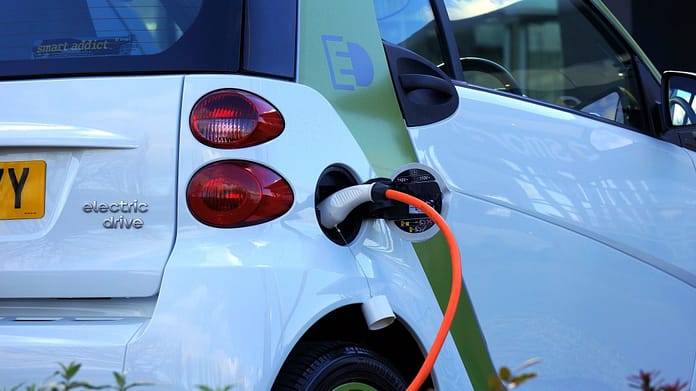An electric vehicle (EV) is propelled by one or more electric motors. Depending on the type of vehicle, wheels or propellers powered by rotary motors may provide motion. An electric car is a type of alternative fuel vehicle that uses electric motors, and stores electricity in an energy storage device, such as a battery. The wheels of the vehicle are powered by electricity via an electric motor, but they’ve got limited energy storage capacity, which is why a power source is needed to replenish that energy. But, what’s the EV charging cost? Keep reading to find out!
The main difference between EV and fossil fuel-powered vehicles is that electric vehicles can receive the energy they need from a variety of sources, such as nuclear power, solar power, wind power, or any combination of them. In order to get the energy they need, EVs have to be connected to a power source to then store it inside. These electric vehicles chargers may be found in many places, and will be more and more available as the adoption of EVs become more widespread. What can be affirmed is that, in addition to being environmentally friendly, EVs are friendly to the pocket of those who drive them. Just compare how much it costs to charge a gas powered vehicle with the EV charging cost.
Need to add something with quantitative evidence? Like a use case that includes numbers?
You may still be wondering if, despite all the benefits, trading in your old car for an electric one is really worth it. For your peace of mind, EV fast chargers can be found in more and more places, and the comparison with the cost of charging a gasoline-powered car still gives the advantage to electric cars and the EV charging stations cost.
What’s available?
Most drivers know the difference between the types and grades of gasoline, such as regular, diesel, premium, etc. When it comes to electric cars, do they also know what are the differences between the types of chargers? Let’s see. The first thing you need to know is that EV chargers are measured in ‘levels’, rather than ‘grades’. Each level describes how fast that charger recharges the vehicle’s battery: the higher the number of kilowatts (kW) that a charger outputs, the faster it will charge the EV. Today, the two most commonly used are the Level 2 (AC), and the DC Fast Chargers (DCFC).
Level 2 charging stations costs vary depending on the provider, but the average is between $0.20 to $0.30 per kWh. That translates to $1.00 to $5.00 per hour, and fully charging an electric car battery takes approximately eight hours. Regarding DC Fast Charger price, it is essential to consider that they are charged both per kWh and per minute of charging, depending on the charging location, and the state, for example, in some states, charging per kWh is illegal. Prices range from $0.10 per kWh to $1.00 per kWh. The average in the United States is $0.35 per kWh.
According to some reports, if you put 1,000 miles on your vehicle per month, and you pay around $0.10 kWh of electricity, translating to around $33 to recharge your electric vehicle. If you double that rate, it’ll translate into a $66 bill. Compared to the cost of fuel for your car, if you drive the same amount of miles, you’d spend between $70 and $100.
To summarize
Electric car charging prices may vary depending on the type of charger you choose but, even so, you will always end up paying less than charging your regular car with gas.
If you are thinking about a more sustainable mobility option, and more favorable for your finances, you should definitely consider switching to an electric vehicle.



